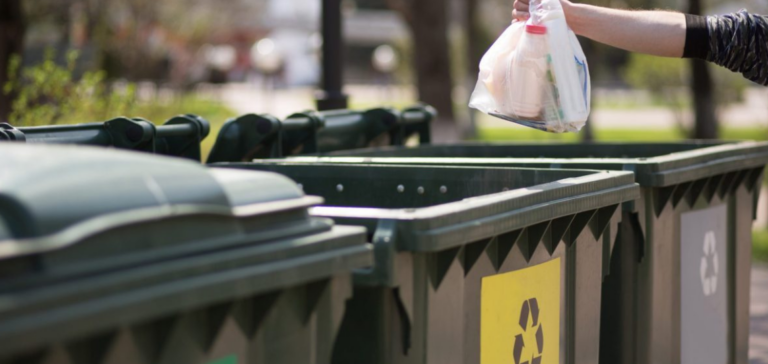Biowaste management is becoming a priority in Europe, with France making sorting compulsory from January, in line with European Union directives. This initiative is part of a wider effort to recycle 60% of household waste by 2030.
Bratislava: a pioneer in biowaste management
Bratislava, the capital of Slovakia, has made a name for itself in this field, starting in October 2021. Without arousing protest, the authorities introduced sorting into the daily lives of the 425,000 inhabitants, initially distributing compostable garbage can bags in a family neighborhood before extending the practice. Their approach has paid off, with a take-up rate of 90% in single-family homes and 56% in apartments. The city is even planning to build a management unit to process the compost more efficiently.
Brussels: From voluntary to mandatory
Brussels began its first tests in 2013 and has made sorting compulsory from May 2023. For the 1.2 million inhabitants of the Belgian capital, the change is reflected in the introduction of orange bags, the contents of which are transformed into biomethane and compost. In fact, this initiative has already reduced the average weight of a bag of household waste by 9%.
Frankfurt: Forerunner with challenges to meet
In Frankfurt, organic waste collection has been compulsory since 1999. The city, with its 767,000 inhabitants, collects this waste to produce mainly biomethane. However, the popularity of this bio-bin is limited due to odor and space issues, underlining the challenges of managing bio-waste in an urban environment.
Milan and Seoul: Biowaste management and overcoming challenges
Milan, Italy, has become an example in this field, with 87% of food scraps sorted, totalling 140,000 tonnes a year. However, the city has adopted an almost daily collection system for hotels and restaurants, and twice weekly for residents, helping to minimize nuisance.
Finally, Seoul in South Korea stands out with 88% of its biowaste composted. The city has adopted a unique approach since the late 1990s, where food scraps are often dried and powdered for use as fertilizer or animal feed. However, this practice has raised concerns among some animal lovers.
The widespread adoption of biowaste sorting in Europe marks an important step towards more sustainable waste management. Cities such as Bratislava, Brussels, Frankfurt, Milan and Seoul are leading the way with their innovative initiatives, although challenges remain, particularly in terms of public acceptance and logistics. This transition to environmentally-friendly waste management is essential if we are to achieve the recycling and sustainability targets set for 2030.






















